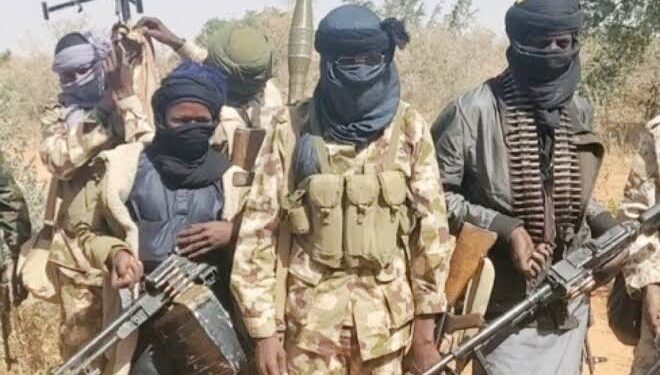Kaduna State Government (KDSG) has confirmed that the notorious bandit commander, Kachalla Sharme and others have been killed in a fratricidal clash .
The Overseeing Commissioner for Internal Security and Home Affairs, Mr Samuel Aruwan ,announced this in a statement issued on Monday in Kaduna.
Aruwan said, “After diligent follow-up operations and exploitation of vast human intelligence networks, it can be happily reported that the notorious bandit commander Kachalla Sharme, and other bandits, have been killed in a fratricidal clash.”
He said aside Sharme, two other bandits from a rival group were killed in the fierce gun duel, which also enabled some kidnapped citizens to escape from captivity.
According to intelligence sources, five bandits were injured in the clash and are presently lurking in the area, seeking paramedics to manage their wounds.
Aruwan said Sharme, a notorious bandit, who had butchered many citizens, kidnapped hundreds and rustled innumerable herds of cattle, met his end in a battle between his group and an opposing gang.
He disclosed that the clash occurred at the weekend, around a location referred to as ‘Hambakko’, in the Rijana and Kaso forests, which span Kachia and parts of Chikun and Kajuru LGAs.
Aruwan said, “Sharme had several times escaped the crosshairs of security forces by a mere whisker, and remained hotly sought after before he was gunned down by fellow terrorists.”
He explained that Sharme and his gang of bandits were largely responsible for attacks, killings and kidnappings.
These were mainly in Millenium City, Maraban Rido, Kujama, Kajuru, Maro, villages in Kateri general area and other locations in adjoining LGAs of Kagarko, Kachia and Birnin Gwari.
“This was in addition to his criminal acts in neighboring states of Katsina and Niger, which were also left reeling from the waves of his terrorism.
“One of the most heinous acts perpetrated by Kachalla Sharme was the kidnapping of 121 students of Bethel Baptist High School, Kujama, Kaduna State on July 5th , 2021.
“In the course of repelling Sharme and his gang of terrorists, two personnel of the security forces paid the supreme price, “Aruwan said.
He warned residents of Rijana, Kaso, Kasarami, Jaka da-Rabi, Kajuru and Dutse general areas and beyond, not to render any assistance to suspicious persons seeking treatment for gun wounds.
“They are urged instead to contact the nearest security forces or reach the Kaduna State Security Operations Room on the following lines: 09034000060, 08170189999.” Aruwan said.
He said that as is standard practice, such information received would be treated with the highest sense of confidentiality.(NAN)











